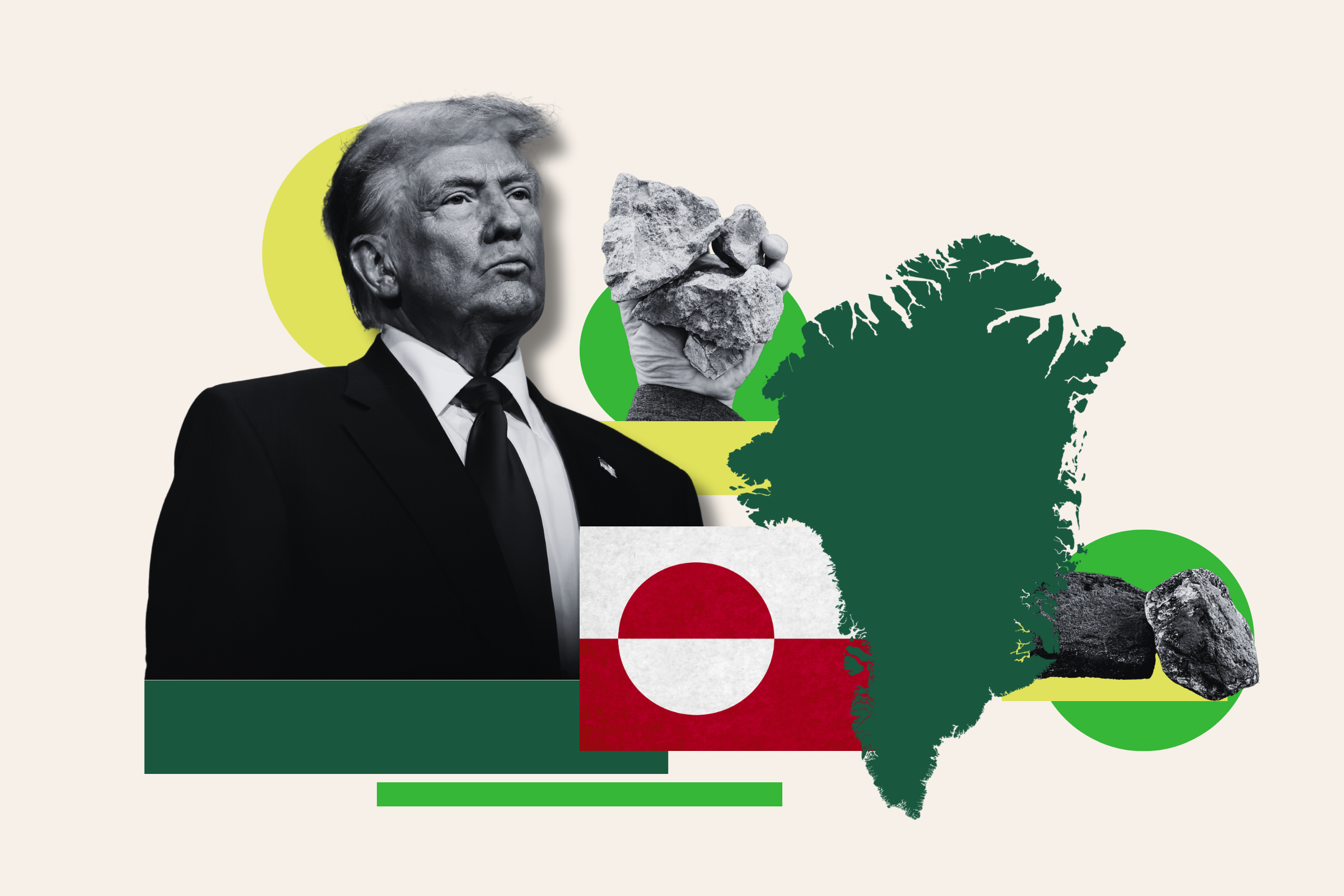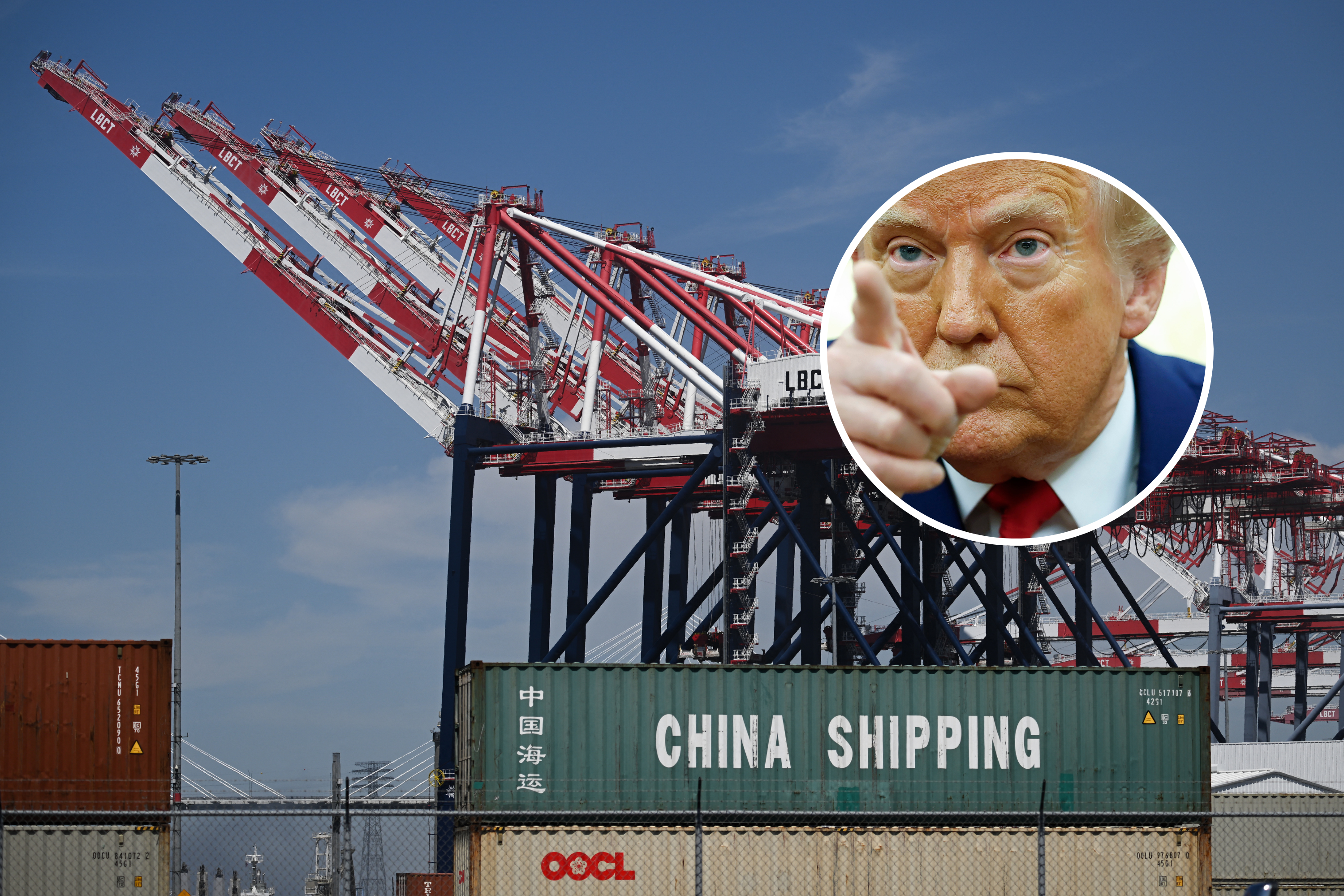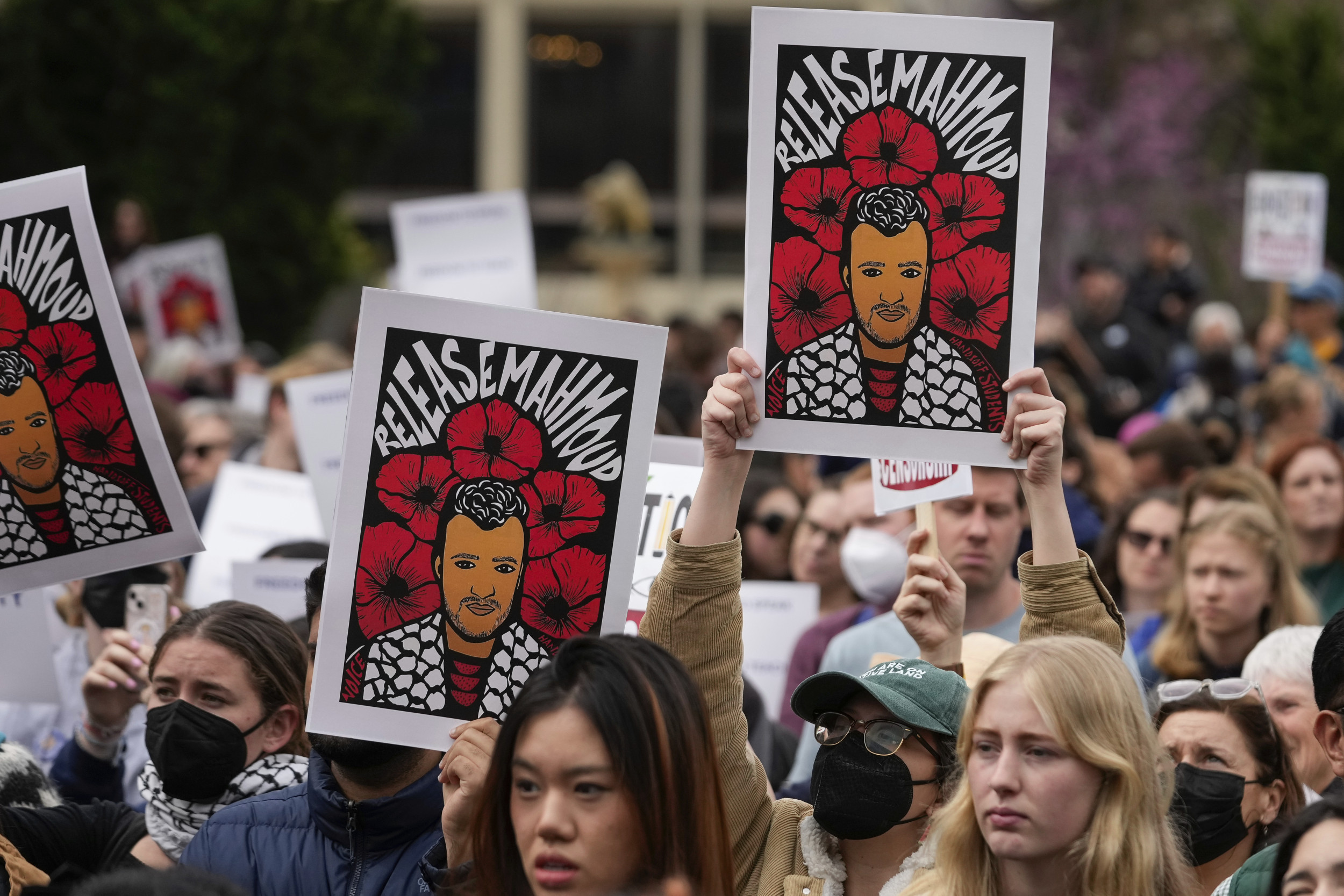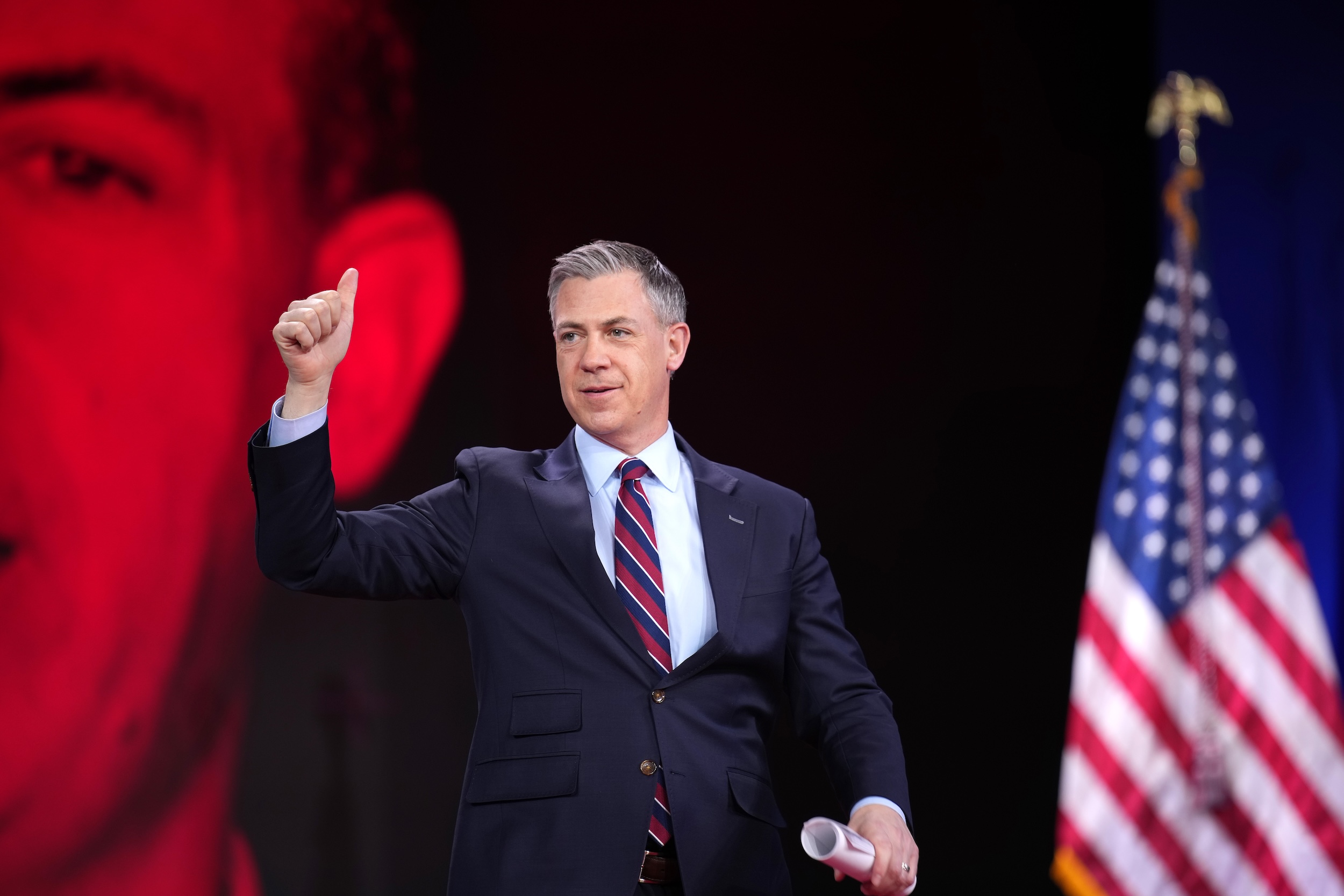🎙️ Voice is AI-generated. Inconsistencies may occur.
Several Republicans have raised alarm about President Donald Trump's tariffs, warning they will raise prices and derail the economy.
On Wednesday—which he called "Liberation Day"—Trump announced that he would impose higher tariff rates on dozens of nations that run trade surpluses with the United States.
Speaking in the White House Rose Garden, the president said he would impose a 10 percent baseline tariff on imports from almost all countries and "reciprocal" tariffs on others, unveiling a chart showing higher duties on some of the U.S.'s most significant trading partners.

Trump said the tariffs would boost domestic manufacturing, bring in revenue and restore fairness to global trade.
However, many economists have warned that the plan could push the economy into a recession and that American consumers would end up shouldering the burden of the tariffs as importers passed on costs in the form of higher prices.
Later on Wednesday, the Senate passed a resolution by a 51-48 vote that would end Trump's emergency declaration on fentanyl trafficking underpinning his tariffs on Canada. Four Republican senators—Susan Collins, Mitch McConnell, Lisa Murkowski and Rand Paul—voted with Democrats, highlighting cracks in GOP support for Trump's economic plans.
Still, the legislation has little chance of passing the Republican-controlled House and being signed by the president.
Here's what Republicans critical of Trump's tariffs have said.
Former Vice President Mike Pence
Pence, who served as vice president during Trump's first term, wrote on X, formerly Twitter, on Wednesday: "The Trump Tariff Tax is the largest peacetime tax hike in U.S. history."
He added that the tariffs were almost 10 times the size of those imposed during the Trump-Pence administration and would "cost American families over $3,500 per year."
Senator Rand Paul of Kentucky
Paul told Fox News on Wednesday that tariffs were a "bad idea" for the economy.
"Trade is proportional to wealth," he said. "The last 70 years of international trade has been an exponential curve upwards, and the last 70 years of prosperity has been upwards also. We are richer because of trade with Canada, and so is Canada."
"Whenever you trade with somebody—when an individual buys somebody else's product—it's mutually beneficial, or you wouldn't buy it," he continued, adding: "The consumer wins when the price is the lowest price. Tariffs raise prices, and they're a bad idea for the economy."
Senator Susan Collins of Maine
Collins said on the Senate floor on Wednesday that tariffs would hurt families in her home state, which shares a border with Canada.
"The price hikes that will happen for Maine families—every time they go to the grocery store, they fill their gas tank, they fill their heating oil tank—if these tariffs go into effect will be so harmful," she said. "And as price hikes always do, they will hurt those the most who can afford them the least."
Senator Lisa Murkowski of Alaska
Murkowski wrote on X that she voted in support of the Senate resolution because of the effects that tariffs on Canadian imports would have on families and businesses in her state.
"While not all Canadian trade practices are fair, I'm keenly aware of the negative impacts in store for Alaskan families and businesses should tariffs drive up the costs of essential goods," she wrote.
Murkowski continued: "In Alaska, this relationship matters. We share more than 1,538 miles of border with Canada—some of our communities share schools and churches. Our best-known road is the Alcan (Alaska-Canada) Highway. We are friends, neighbors, partners, and allies when it comes to our economies, our mutual defense, our cultures, and, yes, our trade."
She said that while she supported Trump's efforts to block the flow of fentanyl into the U.S., she was "certain" the U.S. could "find a better way to mutually secure our borders and address fentanyl trafficking than by starting a trade war."
Senator Mitch McConnell of Kentucky
McConnell said that tariffs were "bad policy" and that trade wars "hurt working people most."
In a Wednesday news release, he said the last thing the U.S. needed was to "pick fights with the very friends with whom we should be working with to protect against China's predatory and unfair trade practices."
"Make no mistake: Goods made in America will be more expensive to manufacture and, ultimately, for consumers to purchase, with higher broad-based tariffs," he added. "At a time when Americans are tightening their belts, we would do well to avoid policies that heap on the pain. We ought to strengthen our friendships abroad, and reinforce our allies as pillars of American prosperity and security."
Senator Thom Tillis of North Carolina
Tillis said on Tuesday that Trump's reciprocal tariffs could cause irreparable damage to farmers in his state.
"Anyone who says there may be a little bit of pain before we get things right need to talk to my farmers who are one crop away from bankruptcy," he told CNN. "They don't have time. So we've got to be crisp on this implementation. Otherwise, we could do damage that's irreparable to farmers."
Representative Don Bacon of Nebraska
Bacon has said Congress made a "mistake" in giving presidents broad authority to impose tariffs.
"In Article 1 in the Constitution, really tariffs should be a congressional-initiated action. So this should come from Congress," Bacon told CNN last week.
He added: "However, I think we made a mistake. In the past, we passed legislation that gave the president some temporary tariff authorities. And I think we should look back and maybe restore the power back to Congress and take away the authorizations that we've allowed the presidents."
fairness meter
About the writer
Khaleda Rahman is Newsweek's National Correspondent based in London, UK. Her focus is reporting on education and national news. Khaleda ... Read more



